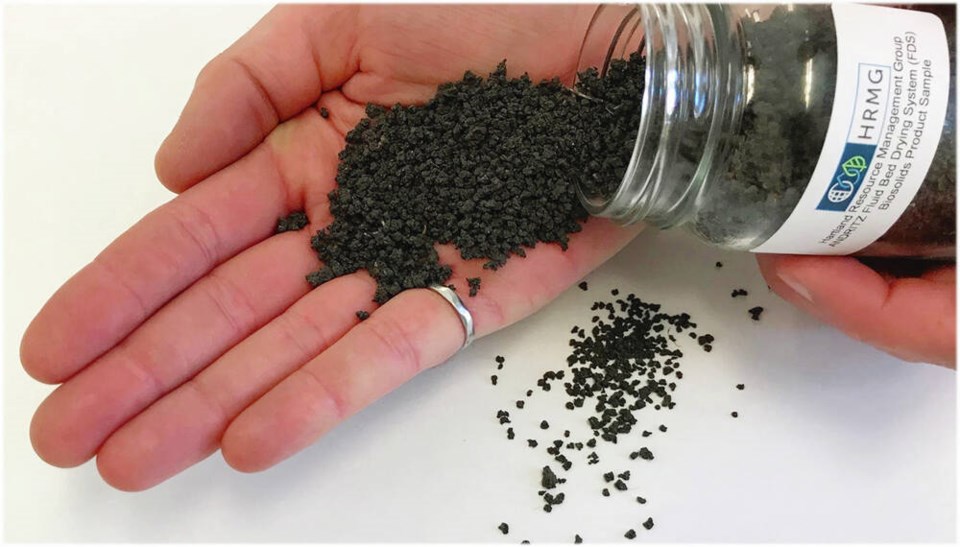A U.S. government study warning of potentially dangerous levels of “forever chemicals” in sewage sludge sold as fertilizer is raising concern among some experts in Canada, who say more needs to be done to ensure application of the material isn’t contaminating the environment and harming people.
The U.S. Environmental Protection Agency (E.P.A.) released a report Tuesday warning exposure to sewage sludge containing per- and polyfluoroalkyl substances, or PFAS, could pose risk of human health.
The substances include a group of 4,700 “forever chemicals” that have been found in everything from cosmetics and food packaging to carpets, non-stick cookware, diapers and clothing.
In some cases, the E.P.A. assessment found concentrations of the chemicals exceeded regulatory thresholds "by several orders of magnitude.”
The chemicals take many years to break down and have been linked to a range of illnesses — including altered immune and thyroid function, negative reproductive and developmental outcomes, liver and kidney disease, and cancer.
The study found biosolids contaminated with PFAS have not contaminated the general food supply. But the agency did find human health risks connected to PFAS exposure when treated sewage sludge — known as biosolids — was disposed in landfills, incinerated, or applied to farms or range lands.
Some 'forever chemicals' phased out but massive footprint remains
Domestic manufacturers in the U.S. voluntarily phased out production of the two "forever chemicals" analyzed in the report — PFOS by 2002 and PFOA by 2015. The E.P.A. says its continued presence is likely due to historic contamination and ongoing introduction through consumer, commercial and industrial products.
Canada, for its part, banned PFOS by 2002 and PFOA 2012, though there are some exemptions.
The Canadian federal government is in the process of developing a chemical management plan for PFAS. A July 2024 updated draft state of PFAS in Canada found contamination from “forever chemicals” present throughout Canada and “not limited to a few sources or areas.”
The Canadian Food Inspection Agency (CFIA), meanwhile, has been working with provinces and municipalities since 2023 to implement interim standards for PFAS in biosolids. The agency implemented an interim standard in October 2024 that prohibits the importation and sale of municipal biosolids into Canada that contain PFOS levels at 50 parts per billion or higher.
“The standard applies to all domestic and imported biosolids intended for use as commercial fertilizers,” said a spokesperson in an email.
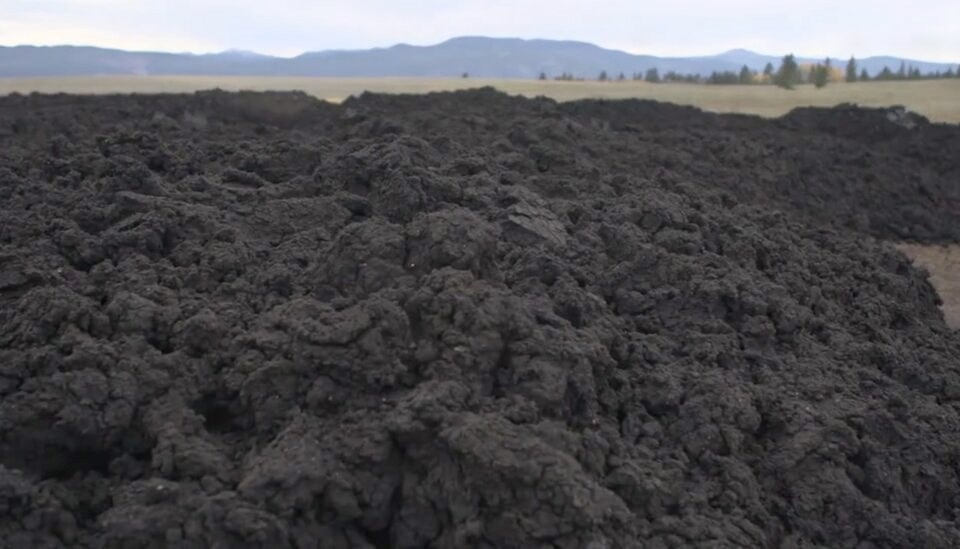
Despite Canadian attempts to regulate PFAS, an estimated 15,000 PFAS substances remain on the market, said Peter Ross, a toxicologist who runs Raincoast Conservation Foundation’s Healthy Waters program.
Ross said his team has found “forever chemicals” in most of the waters samples they have collected across British Columbia. He said there is “significant concern” in Canada that the substances are being redistributed into agriculture, forestry and mining reclamation through the application of biosolids from wastewater treatment plants.
“Everyone knows they’re harmful. Everyone knows they’re considered to be ‘forever chemicals,’” said Ross. “But only a handful have been banned.”
At the time of publication, Health Canada had not responded to questions over how it might respond to the U.S. PFAS assessment.
Concentrations of PFAS in wastewater often found to be increasing in Canada
B.C.’s Environmental Management Act encourages wastewater operators to find a beneficial use for biosolids — a policy backed nation-wide by the federal government. But quality control only requires measuring for heavy metals and pathogens like fecal coliform. Nobody, said Ross, has to look for pesticides, hydrocarbons, polychlorinated biphenyls (PCBs), dioxins, flame retardants or PFAS.
That doesn’t mean some people aren’t testing. Last year, federal scientist Sarah Gewurtz published a study monitoring the fate and behaviour of 42 “forever chemicals” in 27 Canadian wastewater plants.
The results, which anonymized the locations of the wastewater plants, found some PFAS concentrations decreased over time, something the researchers attributed to the phase-out of industrial production and regulations.
However, the presence of PFOS in wastewater — a “forever chemical” highlighted in the recent U.S. assessment and exempt from the Canadian ban when used by firefighters at airports and military installations — was found not to decrease over time.
“We’re basically dealing with contaminated sites at airports across Canada,” Ross said.
Meanwhile, concentrations of other “forever chemicals” used to replace phased-out PFAS were found to increase in Canadian wastewater between 2009 and 2021, according to the updated draft state of PFAS in Canada.
Long-used fertilizer sees increased scrutiny
For the past 30 years, Metro Vancouver has sold biosolids across B.C. and Alberta under the brand name Nutrifor. The fertilizer is an end product of “advanced wastewater treatment” that transforms raw sewage into a sludge or biosolid.
Left over sludge is treated and heated to reduce odours and kill pathogens. At that point, the biosolids become nutrient-rich fertilizers that have been used to reclaim landfills and mines, fertilize range lands and regional parks, and has been regularly sold to the public to boost growth in backyard gardens.
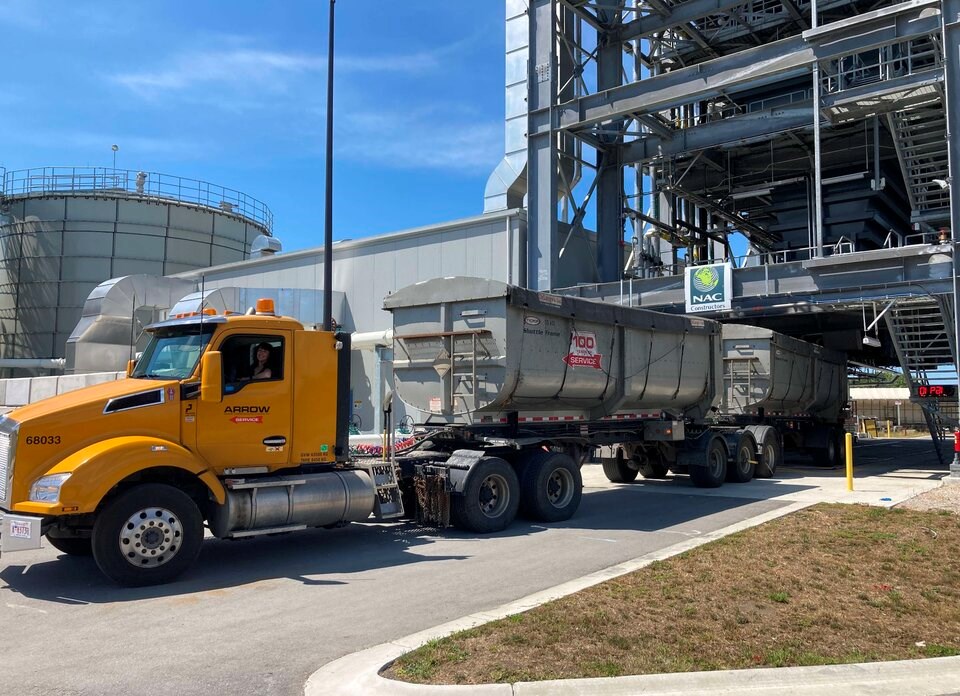
Nutrifor has been applied to public parks from North Vancouver to Surrey, ranches and dairy farms in the province's Interior, and is sold as turf and garden blends for up to $20 a bag. The peat-like substance is even used as a key ingredient in a soil for landfills that absorbs methane gas and reduces greenhouse gas emissions, according to Metro Vancouver.
Janelle Hunt, a program manager at Metro Vancouver’s liquid waste services department, said the region’s wastewater treatment plants do not receive large inputs of PFAS. She said Metro regularly tests for “forever chemicals” in wastewater sludge it treats and sells as fertilizer across Western Canada.
“Not all biosolids are the same; their quality reflects what the community sends down its drains,” Hunt said.
She added test results show PFAS levels in Metro Vancouver are consistently lower than the Health Canada Soil Quality Guideline limits.
“Metro Vancouver continues to stay current with the available science to ensure the safety and quality of its biosolids,” said Hunt. “We have a rigorous quality control program and regularly test biosolids for PFAS.”
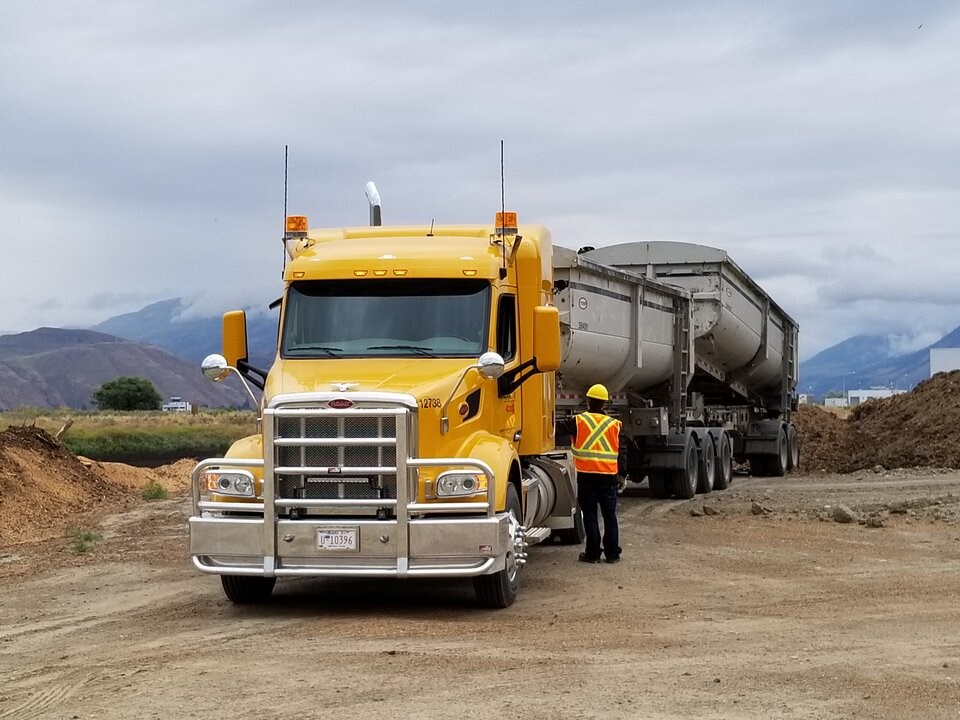
But others in B.C. worry the benefits of the nutrient-rich sludge are outweighed by the risk the unwanted contaminants pose to the environment and people.
Biosolid Free BC founder Philippe Lucas said he turned against the application of the sewage sludge on agriculture land while serving as a Victoria city councillor. At the time, he said the Capital Regional District (CRD) was considering distributing the biosolids to local farms.
He was part of a group that fought against that effort — and won. The south end of Vancouver Island has become a rare biosolid-free region ever since, said Lucas.
But in the years since, the former councillor said the province has pressured the CRD to allow disposal at the local Hartland landfill as part of a federally led policy that encourages biosolids producers to find a “beneficial use” for the material.
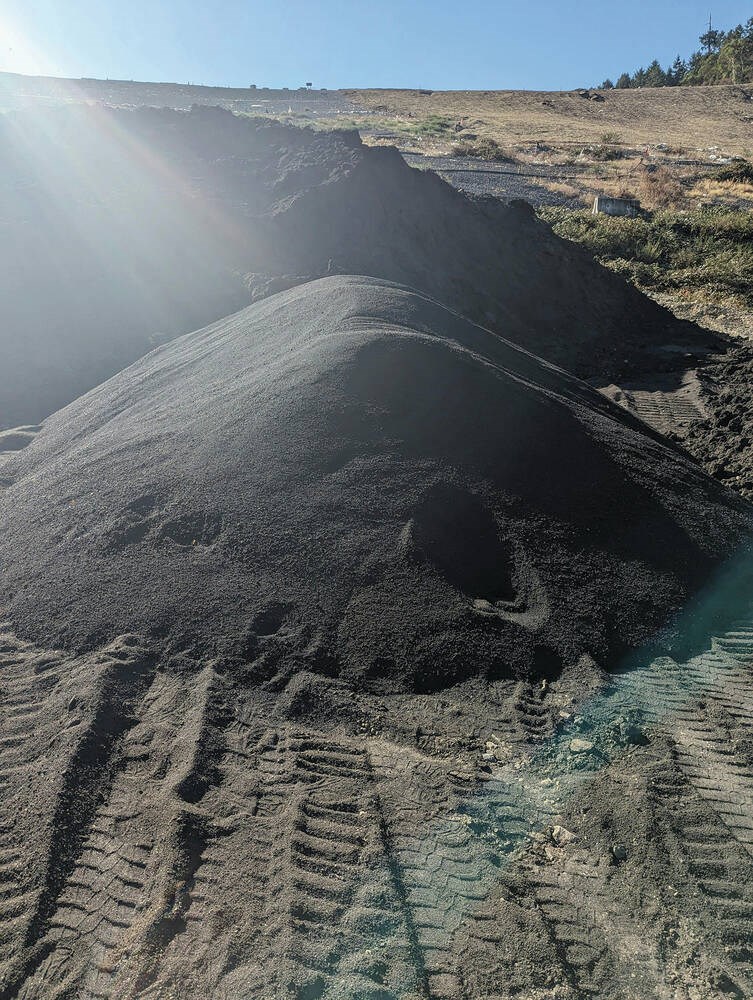
At the same time, some jurisdictions have recently moved to regulate the potential application of PFAS on agricultural land. In 2022, Maine was the first U.S. state to ban the application of biosolids on farmer fields. A year later, five European countries — Germany, the Netherlands, Sweden, Denmark and Norway — called for a major restriction on PFAS across the European Union.
And in a Canadian first, the B.C. government filed a class-action lawsuit against manufacturers of PFAS in 2023, alleging they were involved in the widespread contamination of drinking-water systems.
Lucas said that puts the province in an “unquestionable position of hypocrisy where they’re suing the PFAS manufacturers while insisting municipalities distribute biosolids they know have forever chemicals in them.”
A spokesperson for the Ministry of Environment and Parks declined to comment for this story, saying the class action remains before the courts.
